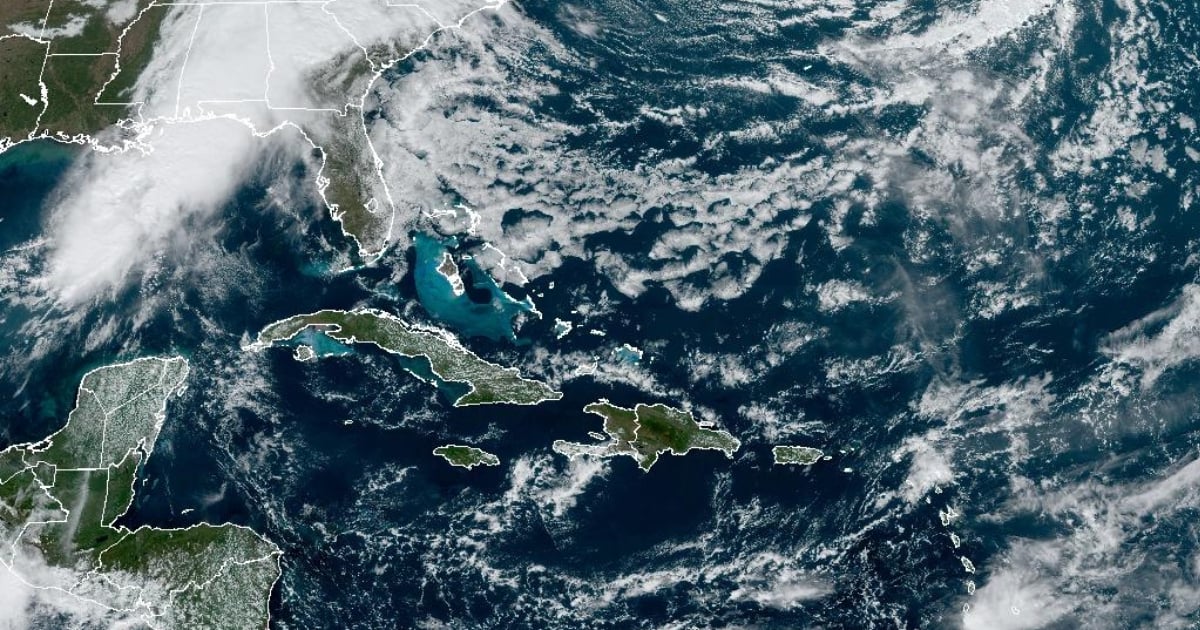The National Hurricane Center (NHC) in the United States delivered a rare bit of good news this Tuesday amidst one of the most turbulent hurricane seasons the Atlantic has seen in the past thirty years: "No tropical cyclone formation is expected in the next seven days."
Satellite images and weather charts released by the NHC on November 19th show the Atlantic, Caribbean Sea, and Gulf of Mexico as completely clear, suggesting that the 2024 hurricane season may have effectively ended, even though the official close is still 11 days away. "For the North Atlantic, Caribbean Sea, and the Gulf of Mexico: No tropical cyclone formation is expected during the next 7 days," the NHC stated in their forecast.
Cuban meteorologist Raydel Ruisanchez echoed the announcement from the American agency. "I believe we've concluded the hurricane season," he remarked in a social media post. "With only 11 days left until the official end of the hurricane season, no cyclonic development is expected." However, he cautioned that "there are still some favorable conditions in the Caribbean Sea for tropical cyclone formation, but the likelihood is very low."
A Season of Unprecedented Activity
The 2024 Atlantic hurricane season, which began on June 1st and officially ends on November 30th, witnessed 18 depressions, 18 storms, and 11 hurricanes, with five reaching major hurricane status—Category 3 or higher on the Saffir-Simpson scale, according to data from Wikipedia. This year, cyclones resulted in 375 fatalities and caused $148.29 billion in damage, marking it as "the third most costly season recorded in the basin" to date.
As the 2024 cyclone phase draws to a close, it is evident that meteorologists were largely accurate in their forecasts. Experts from Colorado State University (CSU), known for pioneering seasonal hurricane predictions, had predicted in early June that this would be an "extremely active" season, with 23 named storms, 11 hurricanes, and five major hurricanes in the Atlantic. Their predictions significantly exceeded the 30-year average of 14 named storms, seven hurricanes, and three major hurricanes.
The National Oceanic and Atmospheric Administration (NOAA) had also warned prior to the season's start that it would be the most active in the last three decades, anticipating between 17 and 25 storms with winds exceeding 62 kilometers per hour.
Cuba's Direct Encounters
Cuba faced direct impacts from two powerful hurricanes: Oscar (Category 1) and Rafael (Category 3), both of which left a trail of destruction and significant losses. Oscar struck the eastern region, particularly Guantánamo province, on October 20th, causing massive floods that isolated entire communities and inflicted severe damage to homes, infrastructure, and agriculture in the municipalities of San Antonio del Sur, Imías, Maisí, and Baracoa.
The most tragic outcome was the loss of at least eight lives, according to official government figures, which also reported two missing persons. These figures have not been updated, but residents from affected areas in Guantánamo claim there are more fatalities.
Two weeks later, on November 6th, Rafael devastated the western part of Cuba, wreaking havoc in the provinces of Artemisa and Havana, as well as causing destruction in Mayabeque and Pinar del Río. The hurricane resulted in thousands of home and building collapses, a blackout lasting over a week, damage to electrical and telecommunication networks, and severe agricultural losses, further exacerbating Cuba's ongoing economic crisis.
Cold Front Approaching
As the hurricane threat recedes, a cold front is expected to affect the island in the coming days, bringing rain, thunderstorms, and a noticeable drop in temperatures.
